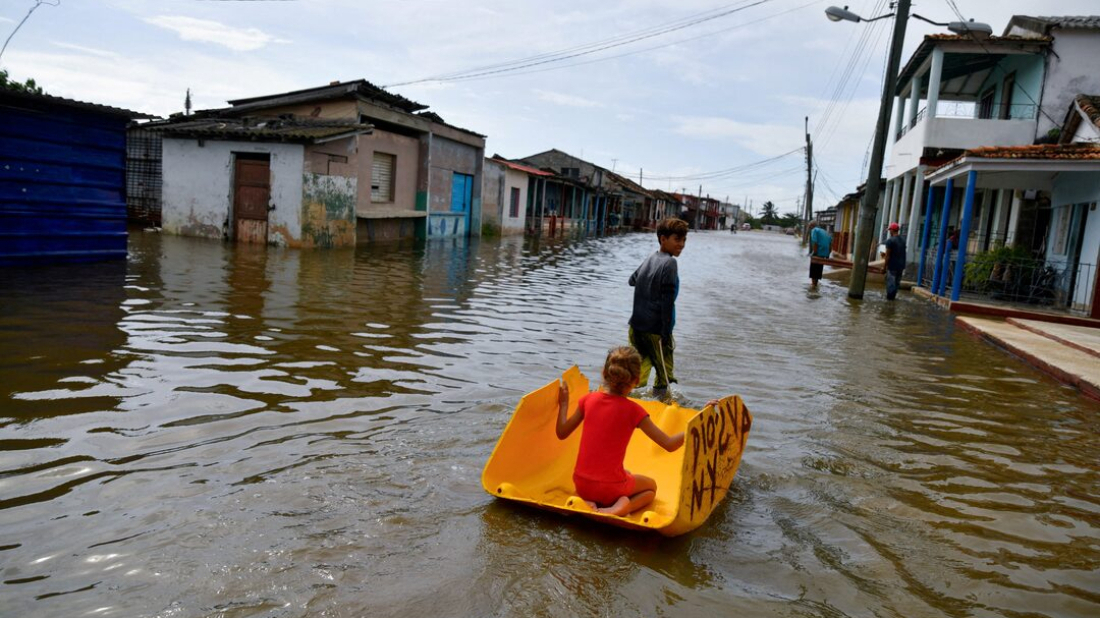Paris sees boom in luxury marriage proposals for Valentine’s Day
Tourists from all over the world flock to Paris, France for elaborate Valentine’s Day proposals, with agencies reporting record bookings and luxury ...

2024 is on track to become the hottest year on record, warns the EU’s Copernicus Climate Change Service, driven by rising global temperatures. Scientists urge stronger climate action at COP29 as extreme weather devastates regions worldwide.
The EU’s Copernicus Climate Change Service (C3S) announced that 2024 is almost certain to become the hottest year on record, surpassing 2023. This finding comes just before the COP29 climate summit in Azerbaijan, where countries will discuss increased funding for climate action, though Trump’s recent U.S. election win has lowered expectations for ambitious outcomes.
C3S reported that January through October had such high temperatures that only a major cooling trend could prevent 2024 from setting a new record. C3S Director Carlo Buontempo attributed this to global climate change, with warming seen in all regions.
Scientists expect 2024 to mark the first year with temperatures over 1.5°C above pre-industrial levels, raising concerns about the Paris Agreement’s 1.5°C limit. Climate scientist Sonia Seneviratne urged stronger measures at COP29, warning that action remains too slow.
Rising temperatures have intensified extreme weather: recent floods killed hundreds in Spain, wildfires burned through Peru, and flooding in Bangladesh destroyed over a million tons of rice. In the U.S., Hurricane Milton was also worsened by climate change. C3S data, aligned with global records back to 1850, highlights the urgent need for decisive climate action.
Europe heads into the Munich Security Conference, on Friday (13 February), amid deepening unease over U.S. policy, as President Donald Trump’s hard-line stance on defence, trade and territory fuels doubts about Washington’s long-term commitment to transatlantic security.
American figure skating star Ilia Malinin endured a dramatic collapse in the men’s free skate on Friday night, falling twice and tumbling out of medal contention at the Milan Cortina Winter Olympics as Kazakhstan’s Mikhail Shaidorov surged to a surprise gold medal.
“Respected and feared globally,” U.S. President Donald Trump told troops at Fort Bragg on Friday (13 February), framing America’s renewed strength against to mounting pressure on Iran amid stalled nuclear talks.
Dubai-based global ports operator DP World said on Friday that its long-serving chairman and chief executive, Sultan Ahmed Bin Sulayem, has stepped down following mounting pressure linked to alleged ties to disgraced financier Jeffrey Epstein.
Speaking at Munich Security Conference, Ukrainian foreign minister Andrii Sybiha calls for decisive steps ahead of expected Geneva talks
The administration of U.S. President Donald Trump on Thursday (12 February) announced the repeal of a scientific finding that greenhouse gas emissions endanger human health, and eliminated federal tailpipe emissions standards for cars and trucks.
Tropical Cyclone Gezani has killed at least 31 people and left four others missing after tearing through eastern Madagascar, the government said on Wednesday, with the island nation’s second-largest city bearing the brunt of the destruction.
Rivers and reservoirs across Spain and Portugal were on the verge of overflowing on Wednesday as a new weather front pounded the Iberian peninsula, compounding damage from last week's Storm Kristin.
Morocco has evacuated more than 100,000 people from four provinces after heavy rainfall triggered flash floods across several northern regions, the Interior Ministry said on Wednesday.
Greenland registered its warmest January on record, sharpening concerns over how fast-rising Arctic temperatures are reshaping core parts of the island’s economy.
You can download the AnewZ application from Play Store and the App Store.

What is your opinion on this topic?
Leave the first comment